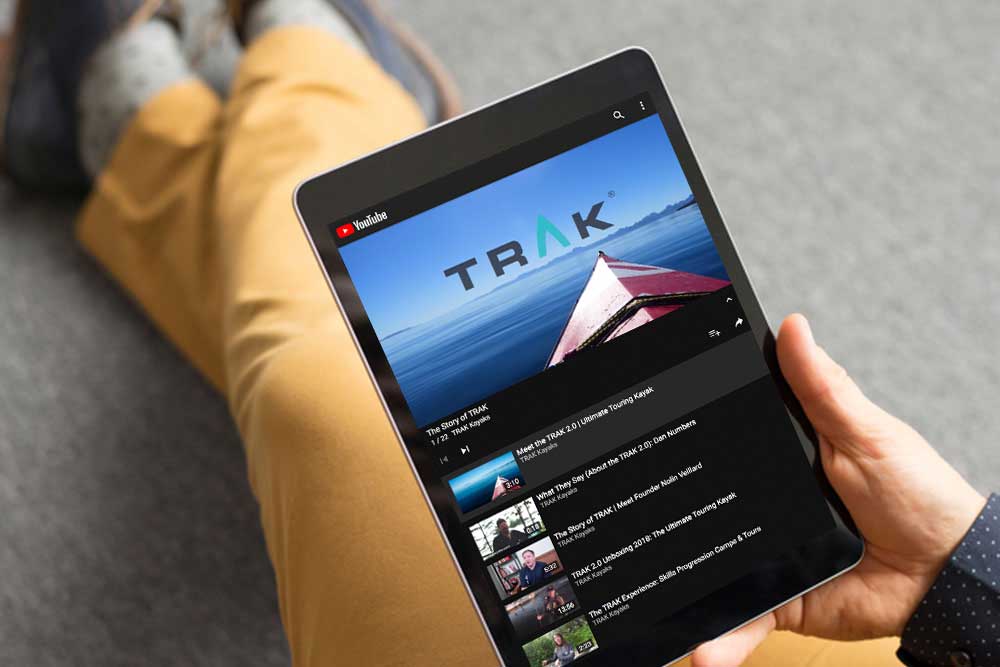BRANDING AGENCY THAT LEAVES A LASTING IMPRESSION
The best companies showcase the value of products and services with consistent and coordinated brand messaging
Giant Partners is a branding agency that specializes in brand creation, awareness and evolution. Our team of designers, copywriters and strategists will ensure your brand is consistent and world-class.
Schedule a meeting with us to get started today.
BRANDING AGENCY THAT LEAVES A LASTING IMPRESSION
The best companies showcase the value of products with strong branding that leaves a lasting impression.
Giant Partners is a branding agency that specializes in brand creation, awareness and evolution. Our team of designers, copywriters and strategists will ensure your brand is consistent and world-class.
Voice search and AI make branding more important than ever before. Companies that do not focus on brand awareness, loyalty and evolution will lose to competitors as we move into the future of digital marketing.
BRANDING AGENCY BEST PRACTICES

Logo design, font selection, and color choices are essential components of brand identity. Updating these vector elements ensures that new campaigns leave a good first impression.
It is vital to marketing success that your brand represents the quality, reputation, and positioning of products and services. Our branding agency ensures this for each of our clients.
Best Practice: Create square, horizontal, and reversed logo variations that can be used across platforms (Google, YouTube, Facebook and Instagram).
Did You Know: The most powerful brands have names and logos that express their mission clearly and creatively?
What are the most important elements on of brand creation?
Building a strong brand involves multiple elements that collectively contribute to a brand’s identity, perception, and success. Here is a list of the top 10 most important brand creation elements:
1. BRAND IDENTITY
Logo and Visual Elements: A visually appealing and memorable logo is crucial. Consistent use of colors, fonts, and other visual elements across all platforms helps in brand recognition.
Brand Name: Choose a name that is easy to remember, spell, and reflects your brand’s personality and values.
2. WEBSITE
User-Friendly Design: A well-designed, responsive website that is easy to navigate is essential for a positive user experience.
Content: High-quality, relevant, and engaging content that communicates your brand’s message clearly.
Domain Name: A domain name that is easy to remember and closely related to your brand.
3. SOCIAL MEDIA PRESCENCE
Consistent Branding: Maintain a consistent brand image across all social media platforms.
Engagement: Regularly interact with your audience through comments, messages, and posts to build a community around your brand.
4. CONTENT MARKETING
Blog Posts, Videos, and Infographics: Create valuable and shareable content that aligns with your brand and provides value to your audience.
SEO: Optimize your content for search engines to improve visibility.
5. BRAND MESSAGING
Mission and Values: Clearly communicate your brand’s mission and values, helping customers understand what your brand stands for.
Tagline: A concise and memorable tagline can reinforce your brand message.
6. CUSTOMER EXPERIENCE
Customer Service: Provide excellent customer service to build positive relationships and foster loyalty.
User Reviews and Testimonials: Positive reviews and testimonials contribute to building trust in your brand.
7. E-COMMERCE
Secure Transactions: If you sell products or services online, ensure a secure and smooth transaction process.
Product Presentation: High-quality images and detailed product descriptions enhance the online shopping experience.
8. ANALYTICS AND DATA
Track Performance: Use analytics tools to monitor website traffic, social media engagement, and other key metrics to make informed decisions.
Customer Feedback: Act on customer feedback to continually improve your brand.
9. MOBILE OPTIMIZATION
Mobile-Friendly Design: As a significant portion of internet users access content via mobile devices, ensure your website is optimized for mobile use.
10. CONSISTENCY
Consistent Branding: Maintain consistency in messaging, visuals, and customer experience across all platforms.

We live in a tweet sized digital communication world. The best brands have compelling slogans and statements that explain and embody what their company does and why they do it best:
Nike “Just Do It” — Every product is no-nonsense and will help you get out there and get active
Subway “Eat Fresh” — Every sandwich is healthy unlike notorious fast food restaurants
Energizer “It Keeps Going, and Going, and Going…” — Every battery lasts longer because of superior technology
Did You Know? Your first idea is often best. Focus on implementation and testing rather than internal feedback.
What is the importance of having a unique value proposition?
A unique value proposition is a statement that summarizes the benefits and value that a product, service, or solution provides to its customers over competitors. It is a crucial element in marketing and business strategy, serving several important purposes:
1. Differentiation: A value proposition helps distinguish a product or service from its competitors. By clearly articulating what sets it apart, a company can create a competitive advantage and stand out in the market.
2. Customer Understanding: Crafting a value proposition requires a deep understanding of the target audience and their needs. It forces businesses to think from the customer’s perspective and tailor their offerings to address specific pain points or desires.
3. Communication: A well-defined value proposition serves as a concise and compelling message that can be easily communicated to customers, partners, and other stakeholders. It helps in conveying the essence of a product or service quickly and effectively.
4. Customer Decision-Making: In a crowded marketplace, consumers are faced with numerous choices. A clear value proposition aids customers in making informed decisions by highlighting the benefits and value they can expect from a particular offering.
5. Brand Building: A strong value proposition contributes to building a brand identity. It helps establish a brand’s image and reputation by associating it with specific attributes and benefits that resonate with the target audience.
6. Sales and Conversion: A compelling value proposition can enhance sales and conversion rates. When customers understand the unique value they will receive, they are more likely to choose one product or service over another.
7. Product Development: The process of developing a value proposition often involves assessing market needs and refining product features. This can guide product development efforts, ensuring that the final offering aligns with customer expectations and demands.
8. Long-Term Customer Relationships: A value proposition is not just about attracting customers; it’s also about retaining them. By consistently delivering on the promised value, businesses can build trust and foster long-term relationships with their customers.
Summary: a value proposition is essential for creating a competitive advantage, effectively communicating with customers, and building a strong brand that resonates with its target audience. It plays a central role in various aspects of business strategy, marketing, and customer engagement.

Compelling visual elements are as important to marketing success as any other factor. For many companies, YouTube video content is more important than Google search rankings.
As regularly as possible, every company should create 15, 30 and 60 second product overviews that can be updated and promoted across online channels.
Best Practice: Layer your branding, value prop and call-to-action on top of stock photography and video for a high-end look at a fraction of the cost.
Did You Know: Customers are 4X more likely to click a link, fill out a form, and become a customer after watching a video (Internal branding agency stat).
Why is effective storytelling so important in digital advertising?
Storytelling plays a crucial role in advertising for several reasons:
1. Captures Attention: Well-crafted stories have the power to captivate an audience’s attention. In a world inundated with information, a compelling narrative can stand out and engage viewers or readers.
2. Emotional Connection: Stories have the ability to evoke emotions. Emotional connections are powerful in influencing consumer behavior. When people feel a connection to a brand on an emotional level, they are more likely to remember the message and develop loyalty.
3. Memorability: Stories are easier to remember than facts or data alone. The brain is wired to remember narratives, and when a story is associated with a product or brand, it enhances recall.
4. Contextualization: Stories provide context to information. They help consumers understand the brand’s values, mission, and the purpose of a product or service. This contextualization can influence the perception of the brand.
5. Differentiation: In a crowded marketplace, storytelling helps a brand differentiate itself. It allows a brand to communicate its unique selling points and showcase what sets it apart from competitors.
6. Simplicity and Comprehension: Stories simplify complex messages. They break down information into a format that is easy to understand, making it more accessible to a wider audience. This is particularly important when communicating intricate or technical details about a product.
7. Fosters Engagement: A good story encourages audience engagement. Whether it’s through comments, shares, or discussions, storytelling can stimulate conversations and interactions around a brand.
8. Inspires Action: Stories have the power to inspire action. Whether it’s making a purchase, sharing the story with others, or participating in a brand’s campaign, a compelling narrative can motivate people to take specific actions.
9. Building Trust: Stories can build trust by humanizing a brand. When consumers can relate to the people or values represented in a story, it creates a sense of authenticity and trust.
10. Long-Term Impact: Stories have a lasting impact. While facts and figures may be forgotten, a well-told story can leave a lasting impression on the audience, contributing to long-term brand recall.
Summary: Storytelling in advertising is a powerful tool for creating a memorable and emotional connection between a brand and its audience. It goes beyond product features and benefits, helping to build a narrative that resonates with consumers on a deeper level.
GET BRAND CONSULATION FOR YOUR BUSINESS
Send us a message below we’ll get back to you in 30 min Monday thru Friday 7am to 5pm PT. Call (800) 547-8080 or live chat below for immediate support.
ABOUT GIANT PARTNERS
24 years. 6000 customers. Giant Partners is America’s #1 data driven marketing agency. We accelerate campaign performance with custom audience databases, strong branding, effective websites, compelling content, marketing tech, online advertising, video advertising, social media and email communications.
